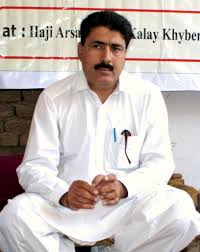
When you live and work in Hollywood it’s often hard to remind yourself that there’s a real world beyond the klieg lights and the billboards.
Amidst the executive tantrums that wouldn’t be tolerated in any other workplace, the self-aggrandizing star demands and requisite red carpet goodie bags loaded with free bling, it can become difficult to grasp the realities of the true lives lived by those depicted on the silvered screen.
Fact is, there is a very real divide between those who make movies and the people or events on which the content of those movies are based.
It’s a world in which celebrities passionately take up political causes yet heap scorn on a famous brain surgeon for deigning to speak similar truths to power; a place where facts are often the first casualty in crafting drama and the fates of those dramatized forgotten in the quest for shiny statuettes.
A while ago, I pointed out that the current fave in the Best Picture category, “Argo” ignored the real story of the rescue of American diplomats from Iran in 1979 to concoct a pretty good movie that didn’t have as much basis in fact as it claimed.
It’s interesting to note that as the “Argo” plot has become more widely questioned, even producer, director and star Ben Affleck has changed his “the story that’s never been told” mantra to the old reliable “Hey, c’mon, it’s only a movie”.
Tomorrow night in Canada, CTV’s newsmagazine “W5” and renowned investigative journalist Victor Malarek will present a reminder of the real story that was known as “The Canadian Caper” for four decades before Hollywood took an interest.
Since CTV isn’t on the dial inside the Thirty Mile Zone, few of those who make movies there will see Malarek’s story. But millions in their audience will and might not be as easily suckered the next time “based on a true story” gets flung around.

Meanwhile, “Lincoln”, currently listed in Vegas as 9-5 to take home the Best Picture statue, has it’s own factual problems.
Recently, in response to a sincere request from the State of Connecticut to change two lines of dialogue in the DVD version so as not to continue to malign the reputations of its Senate representatives of 1865, screenwriter Tony Kushner remarked, “I hope nobody is shocked to learn that I made up dialogue, imagined encounters and invented characters.”
Basically, the writerly version of “Hey, c’mon, it’s only a movie” -- even when a copy of said film is being gifted to every school in America for educational purposes.
In other words, Tony Kushner’s a guy who takes the big meetings now. He doesn’t have time for anybody’s dead ancestors –- or what your kids grow up thinking is History.
But the above are mere show biz quibbles compared with the fate of one character depicted in Best Picture dark horse contender “Zero Dark Thirty”.

Among those who gathered the intelligence which eventually located and led to the killing of Osama Bin Laden was a simple Pakistani doctor named Shakil Afridi (pictured up top).
Shortly after the SEAL team raid on bin Laden’s compound, Dr. Afridi was arrested and sentenced to 33 years in prison in Pakistan, where he is reported being repeatedly tortured.
The lack of action on his behalf by the American government has been widely criticized. And nobody associated with “Zero Dark Thirty” has spoken out in support of the man without whom they wouldn’t have had a movie to make in the first place.
Today, an ad appeared in the Hollywood trade papers asking somebody to do just that, on Oscar night, when Billions are watching.
Will anyone do so? We’ll have to wait until Sunday night to see.
But leave us not forget the examples of “Argo” and “Lincoln” or that Oscar night is the grand-daddy of all movie parties –- and I’m just not too certain that anybody who hopes to keep working in Hollywood might willingly poop it.
UPDATE:
…and nobody said a word. You’re so brave, Hollywood. So brave.





